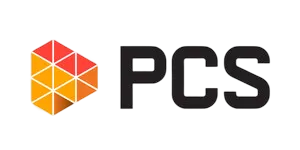In our #TuesdayTechTip, Matt Blatz, Director of Sales & Partner Relationships, explains IT Asset Management.
When you partner with PCS, you can have us manage the end-to-end lifecycle of all your IT assets.
Sign up for a free 30-minute technology consultation with PCS to get help.
Understanding the Benefits of Asset Management
Managing assets effectively is crucial for organizations of all sizes. Whether you're dealing with physical machinery, equipment, or digital assets like software licenses and data, understanding asset management is vital to ensure that your resources are utilized efficiently.
What is Asset Management?
Asset management is the systematic process of tracking, maintaining, and maximizing the utility of an organization's physical and digital assets. These assets represent a significant investment for any business and are essential for smooth operations and competitiveness. Effective asset management goes beyond simply keeping tabs on your assets; it involves optimizing their use, reducing operational risks, and ultimately contributing to improved profitability.
The Scope of Asset Management
Assets in an organization can take various forms:
- Physical Assets: This includes machinery, equipment, and any tangible assets that play a role in your operations. Proper maintenance and monitoring of physical assets are crucial to prevent downtime and ensure safety.
- Digital Assets: Organizations rely heavily on digital assets, including software licenses, databases, intellectual property, and sensitive data. Managing these assets involves tracking licenses, ensuring data security, and optimizing software usage.
Challenges in Asset Management
Managing assets can be a complex and daunting task, particularly for large enterprises with extensive asset portfolios. Common challenges in asset management include:
- Maintenance: Ensuring that physical assets are well-maintained to avoid costly breakdowns or replacements.
- Software License Compliance: Staying compliant with software licenses and avoiding costly penalties.
- Data Security: Safeguarding digital assets and sensitive data from breaches and cyber threats.
- Cost Optimization: Balancing the costs of acquiring, maintaining, and replacing assets to maximize ROI.
PCS Asset Management
Here's where PCS comes into play as a trusted partner to help organizations streamline and enhance their asset management processes:
- Comprehensive Asset Tracking: PCS offers advanced asset-tracking solutions that enable you to monitor and manage assets in real-time. This not only simplifies tracking but also helps prevent asset loss and theft.
- Proactive Maintenance: With predictive maintenance tools, PCS helps you schedule maintenance activities based on actual asset performance data. This approach minimizes downtime, reduces maintenance costs, and extends the lifespan of your physical assets.
- Software License Management: PCS assists in tracking software licenses and ensuring compliance. This prevents costly fines and penalties while optimizing software usage.
- Data Security Solutions: To protect your digital assets and sensitive data, PCS provides state-of-the-art security solutions, including intrusion detection, data encryption, and regular security audits.
- Cost Efficiency: By providing insights into asset utilization and lifecycle costs, PCS helps you make informed decisions about asset investments, replacements, and optimization.
Effective asset management is essential for organizations to maintain operational efficiency and reduce risks. Partnering with PCS can simplify the complex task of managing both physical and digital assets, allowing you to focus on your core business activities and achieve better results. Don't let asset management challenges hold your organization back; explore the benefits of working with PCS today.


